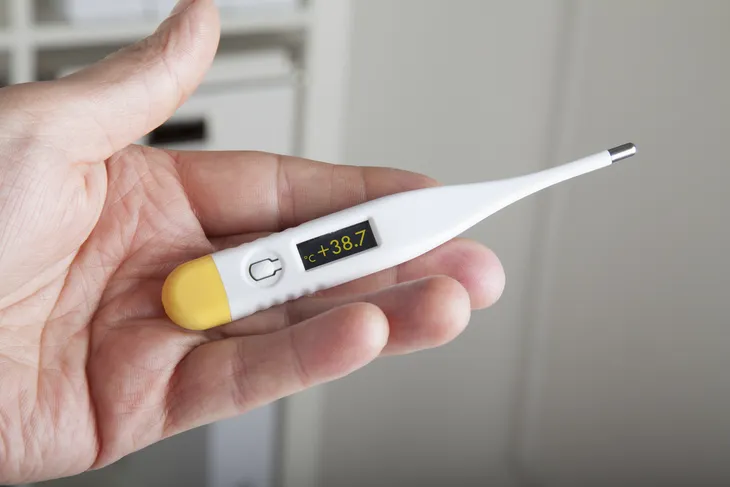Rheumatic heart disease is a heart condition that is caused by rheumatic fever. This condition can be chronic and last a lifetime or only cause short term effects on the heart. Rheumatic fever is a fairly uncommon disease in developed countries. However, in developing countries, rheumatic heart disease is the leading cause of heart disease in children and young adults reports UpToDate.
Rheumatic heart disease is a serious condition that is easily preventable. This makes it all that more important to learn as much as you can about the disease to avoid developing it and understanding the symptoms to know if perhaps you or a loved one has it. Below we’ll cover the symptoms, causes, and treatment for rheumatic heart disease to keep you in the know about this condition.
Causes
Group A Streptococcus Bacteria
It all starts with a strep infection. Yep, this terrible heart condition starts with a sore throat or a rash. If left untreated or undertreated, group A streptococcus can develop into rheumatic fever. Rheumatic fever is an inflammatory disease that can affect the brain, heart, skin, and joints says Johns Hopkins Medicine. It can happen at any age, but is most common in children ages 5 to 15 years old.
Rheumatic fever typically begins one to five weeks after the strep infection. The symptoms will vary greatly depending on which areas of the body the bacteria has affected. Some of the symptoms may include fever, painful joints, small painless bumps under the skin, fatigue, rash, and uncontrollable jerky movements says Children’s Wisconsin.
Symptoms
Joint Pain
Joint pain is usually one of the earliest signs of acute rheumatic fever reports UpToDate. It typically starts within 21 days of the strep infection and is more severe in teenagers and young adults than in young children. It will affect a few joints for a day and up to a week. With new joints beginning to feel painful as others feel better it makes it feel like the pain moves from joint to joint says the source.
The severity of the pain can be anywhere from mild to severe enough that it limits movement. Thankfully, the joint pain will go away in four weeks without treatment says the source. It is always important to talk to your doctor if you have new joint pain that has begun after a fever or strep infection. They will be able to direct you to the best treatment options.
Fever
As with most infections, fever is one of the symptoms of rheumatic fever. The fevers are typically high, greater than 38.5°C (101.3°F). The body responds to an infection with a fever to kick start the immune system. The heat of the fever can actually kill the bacteria and other viruses. It’s your body’s way of saying get out now!
Ironically, one of the ways we treat fevers is with fever reducers, such as ibuprofen and acetaminophen. These medications make us more comfortable, so we’re able to drink plenty of fluids and get much needed rest. With both rheumatic heart disease and rheumatic fever, you’ll want to chat with your doctor on the best way to treat your fever.
Bumps Under The Skin
These small, painless bumps under the skin are called subcutaneous nodules. They are hard and can be a few millimeters to 2-centimeters in size reports UpToDate. The bumps typically show up after the first couple weeks of the strep infection and in patients with rheumatic heart disease.
In most cases, the bumps will last for a couple of weeks and rarely last longer than a month says the source. These bumps can be found over bony areas of the body and near tendons. Most people will get three to four bumps per area, with the elbow being one of the most common sports. Luckily, the skin over the bump doesn’t swell making these more of an annoyance than anything.
Heart Murmur
One of the key symptoms of rheumatic heart disease is a heart murmur. Murmurs are heard with a stethoscope placed over specific areas of the chest. A healthcare professional will hear a noise that does not fit the typical lub dub noise of a heart. This new noise can be from blood moving through the heart valve in an abnormal way.
Not every heart murmur means you have rheumatic heart disease. These physical exam findings can mean absolutely nothing and can end up being labeled as an “innocent murmur.” However, if you have a new heart murmur your doctor will likely follow up with further testing to determine the exact cause of this finding.
Irregular Heartbeat
With swelling in the heart and heart valve changes from rheumatic heart disease, an irregular heartbeat can develop. A common arrhythmia, or irregular heartbeat, seen in rheumatic heart disease is atrial fibrillation (“AFib”) reports RHD Action. This can be detected on a simple electrocardiogram (also known as an ECG or EKG) that is done in a doctor’s office.
AFib can cause the heart to go into heart failure or make heart failure worse says the source. It can also increase your risk of stroke and cause shortness of breath. There are multiple medication options to treat AFib and the sooner it is treated the better!
Swelling
Swelling happens in the arms and legs of people with rheumatic heart disease because of the heart’s inability to pump effectively says Heart & Stroke. With blood pooling in the veins, fluid is pushed into the tissues causing you to become swollen. This symptom can be a sign of heart failure, which is a late complication of the condition.
If you are experiencing new onset swelling after a strep infection then it’s time to head into your doctor’s office. This symptom will not get better on its own and needs medical attention. Swelling is also a symptom of many other conditions, so your doctor will need to do a little investigating to determine the exact cause of your swelling.
Fatigue
Who isn’t tired, at least every now and again? Well, true fatigue is a whole new level of tiredness, and it’s a symptom of rheumatic heart disease. When your heart is not working at its optimal level, your body won’t be able to function at its best either.
The heart has to work overtime with rheumatic heart disease and less blood is going to the organs and tissues, making you absolutely fatigued. Like many of the signs of rheumatic heart disease, fatigue is also seen in many other conditions. So, please don’t jump to conclusions if you are truly fatigued and talk to your doctor.
Lightheaded and Dizzy
Being lightheaded, dizzy, or almost fainting is a sign that your heart may not be functioning well says Heart & Stroke. If your heart valves are not working well, blood is not going to your brain as it should be. This can cause you to feel lightheaded.
Anytime you are lightheaded you should sit or lay down. Don’t try to walk, you can fall and get seriously injured. Once the feeling passes, call your doctor to make an appointment. However, if you do not feel better within a short time, have a friend or family member call your doctor. This is one symptom that shouldn’t be taken lightly.
Treatment
Antibiotics
Since rheumatic heart disease is caused by the group A streptococcus bacteria, one of the treatments is antibiotics. This is to get rid of any residual strep infection and to prevent it from coming back. Thankfully, antibiotic therapy has greatly reduced cases of rheumatic fever and rheumatic heart disease reports Children’s Wisconsin.
According to the source, patients who have had rheumatic fever are typically “given continuous (daily or monthly) antibiotic treatments to prevent future attacks of rheumatic fever and lower the risk of heart damage.” Be sure to let your dentist and any other healthcare provider know of your history of rheumatic fever, so they can treat you appropriately.
Anti-inflammatory Medications
Some doctors will prescribe steroids, such as prednisone, to patients with severe heart inflammation and heart failure reports UpToDate. Steroids have serious side effects (yet are very good at their job) and are reserved for the most serious cases.
The medication can cause fluid retention and gastrointestinal bleeding which can make heart failure worse, reports the source. Starting prednisone or another steroid will require a conversation between you and your doctor.
Surgery
If the heart valves are damaged enough, surgery may be necessary. It’s always best to go into heart surgery as healthy as possible, which is why most patients wait until the acute rheumatic fever phase has passed says UpToDate. The type of surgery and when it will happen are all dependent upon which heart valve(s) are injured and the severity of disease.
Heart surgery is not a small procedure. After surgery, patients are helped along with many different therapists to get them back on their feet. The surgeon discuss the surgical procedure, including total recovery time and expected management after surgery.
Prevention
The best thing anyone can do is prevent rheumatic heart disease. By getting treatment for strep infections, you’ll reduce the likelihood of developing rheumatic fever which in turn can cause rheumatic heart disease.
If you have a sore throat and fever, make an appointment to get a strep test. It’s a simple throat swab with results in minutes. If you do have a strep infection, your doctor will prescribe antibiotics. It’s incredibly important to take the full course of the antibiotic and not stop it once you start feeling better (as the strep infection could return and might acquire resistance to the antibiotic). Prevention really is the best medicine!
















